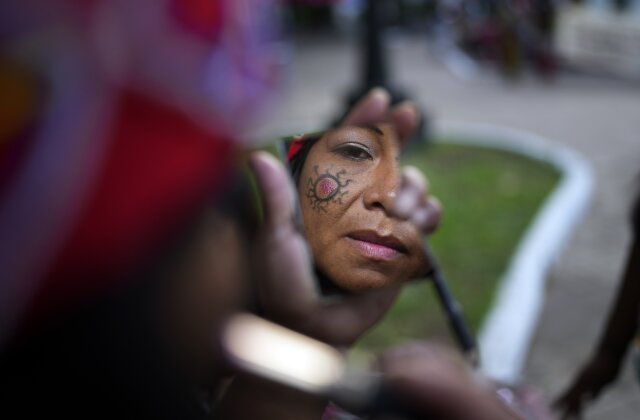“Actions by Hong Kong authorities, including referring to RFA as a ‘foreign force’, raise serious questions about our ability to operate in safety with the enactment of Article 23,” Bay Fang, its president said in a statement.
The law came into effect on March 23 after it was unanimously passed by Hong Kong’s pro-Beijing legislature, updating a broader China-imposed national security law in 2020.
It comes with stiffer punishments from several years up to life for crimes including treason, sedition, state secrets, espionage and external interference.
Critics like the U.S. government say the law gives authorities broader powers to clamp down on dissent. Beijing says the law is necessary to restore order to the financial hub after mass pro-democracy protests in 2019.
Photos You Should See
The closure of RFA’s bureau and the removal of full-time staff is a sign of eroding media freedoms in Hong Kong, critics say, and reflects concerns among some businesses and entities with links to foreign governments that they may be vulnerable under the new laws.
(RFA) was “among the last independent news organizations reporting on events happening in Hong Kong in Cantonese and Mandarin”, RFA’s Fang added.
In recent years, liberal Hong Kong media outlets like the Apple Daily newspaper, Stand News and Citizens’ Radio were forced to shut down under pressure from authorities.
The Apple Daily’s publisher and pro-democracy advocate Jimmy Lai, 76, is now on trial for allegedly endangering national security and publishing seditious materials – a landmark case that could see him jailed for life.
The Hong Kong government said in an emailed response to Reuters that it would not comment on RFA’s decision, but it “condemn(s) all scaremongering and smearing remarks”.
“To single out Hong Kong and suggest that journalists would only experience concerns when operating here but not in other countries would be grossly biased, if not outrageous,” it added.
In recent weeks, Hong Kong authorities have issued statements criticising some international media outlets including the BBC for their reporting on the new security law, while stressing they continue to respect media freedoms.
Media rights group Reporters Without Borders (RSF) ranked Hong Kong 140th out of 180 in its annual global media freedom index in 2023, down from 73 before the 2020 security law.
In January, the Hong Kong police criticised RFA for an interview with an exiled activist, Ted Hui, saying it should not provide a platform for Hui to slander the police.
RFA had been operating its Hong Kong bureau since 1996, a year before the former British colony reverted to Chinese rule.
(Additional reporting by Jessie Pang; editing by Mark Heinrich)
Copyright 2024 Thomson Reuters.
